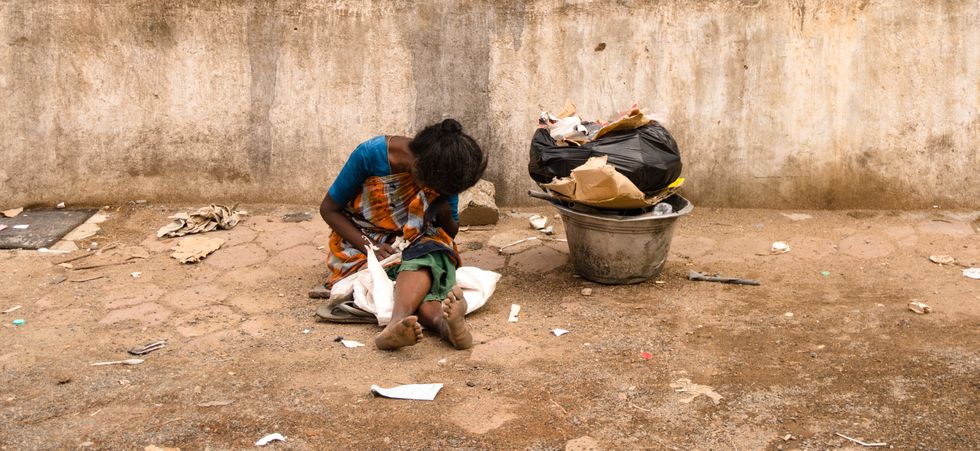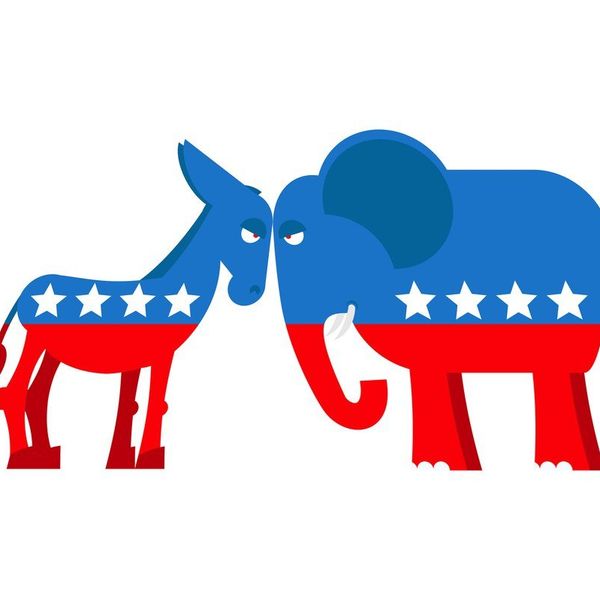Each day, I wake up in a bed that costs me $3,470 to sleep in. I swipe into a dining hall to eat breakfast, later to eat lunch, finally to eat dinner, each swipe deducting $18 from not my own but my parents' wallet. Each day, I attend two or three classes, valued at another approximately $250 per class, per day. I also have a cellphone, a laptop, a television, a microwave, and a refrigerator. Three days a week, I head to work, where I pay $5 to use public transportation to commute to and from the South End. I wear a $300 winter coat, $150 boots, and a $75 backpack carrying no burden of uncertainty or stress on my shoulders, as I will likely never be able to imagine, let alone live, a day that truly costs less than $5. A day that, in other terms, costs less than the price of the mere transportation I take in order to earn a wage; an entire day that must cost a person less money than it takes for me to make money.
In my Globalization and International Affairs class, we were tasked with the challenge to live on less than $5 a day for two days. Approximately 3 billion people in our world live on less than $2 a day, a notable third of whom live on less than $1 a day. Admittedly, I did not even attempt to complete the challenge to emulate this lifestyle of billions, for it was immediately evident that even my best attempt would only mean the elimination of my comparative luxuries and would in no way actually emulate the reality of a true $5-a-day existence. For example, if I were to attempt this lifestyle to the best of my ability, it would start with the elimination of everything listed above that constitutes what I would deem to be even my most minimal and requisite daily routine. In addition to the obvious riddance of anything remotely lavish that has become normalized in my life (Sunday brunches, piano lessons, trips to the MFA, shopping on Newbury), I would also bid farewell to the luxuries that have developed into perceived necessities, like my phone, my laptop, my shoes, or my bed. Further, I would not attend any classes and would have to leave thirty minutes earlier than normal in order to walk to work; I would walk without my warm winter clothes and hungry from the lack of my dining hall dinner, and would later come home to nothing other than maybe a vacant alley or a grassy patch in the Fens instead of my only relatively appealing triple economy dorm room.
Though, even if I successfully did all of those things and proceeded to live two entire days without spending a penny (which would be another challenge in and of itself), I still would be living a daily lifestyle valued extraordinarily higher than $5. For, even if all bells and whistles were to be stripped away, I would remain societally integrated and knowledgeable of the world around me, capable of writing and speaking coherently, healthy and with access to clean water, the daughter to two economically stable parents of whom I am dependent, as well as a citizen of the United States of America, ultimately making me immeasurably more rich than nearly half of the world’s population based on these inherent privileges alone.
This rationale alludes to the more deeply-rooted problems that cause one to live in poverty, as true poverty is so much more than just a given individual’s lack of luxuries, expenditures, or even a place to sleep. I would argue that the worst of the problems of poverty are not the consequences endured in individual circumstances, but rather the larger, structural deficiencies that those individual experiences indicate. We tend to readily envision experiences of poverty in familiar terms as the lives of “the urban poor”− the experience of the homeless man pacing the T car and probing us for spare change, for instance. However, this assumption paints a limited picture, offering a wildly limited understanding of global poverty as, of the 1.1 billion people who live on less than $1 per day worldwide, 70% are small-scale rural farmers and people suffering in areas sufficiently less developed or integrated than that of the urban poor.
In this way, “the urban poor” face a type of poverty that is much different, arguably richer, than that of the rural poor. Though the lives of poor city-dwellers indeed indicate a lack of financial security unimaginable to the likes of me (yet, likely still a type of poverty that I would be able to emulate had I attempted to), the lives of the poorest of the poor represent a stagnating lack of any existing opportunity to even earn such income − a reality I could never emulate as a citizen of such an impressively developed nation. For, the true problem faced by the poorest countries of the world is not evidenced in a given person’s poverty or even unemployment, but rather in the overarching lack of industry, international relations, and stable economy in the country that houses such persons.
Largely concentrated in Africa and Central Asia, these countries that are struggling to develop are such that "coexist with the twenty-first century, yet their reality is the fourteenth century: civil war, plague, ignorance." This means that while a good number of countries are prosperous or have become so, countries that remain in the “bottom billion” in terms of development have been trapped by impoverishing consequences of bad governance, a lack of resources, and conflict. And, although it is not impossible for a country to eventually escape from these traps, it is incredibly difficult. Further, it becomes crucial to consider that, just like it should not be expected for these bottom billion countries to readily escape their complexly debilitating traps, we should not find ourselves expecting that of the individual people who are caught suffering the traps’ consequences.
To understand poverty as an upshot of these larger constructs may sound like an obvious or even natural exercise of awareness, yet the impression that the poor choose their fate maintains − in politics, public policy, and even our own subconscious. As stated by Kofi Annan, secretary general of the United Nations, "most poor people know that they are quite capable of earning their living by their own efforts, and are eager to do so. But they must be given a fair chance to compete." This chance to compete, to develop, to support oneself, however, is all but imagined for the impoverished in countries like Mozambique, Niger, Guinea, or Liberia (to name a few), where the severe lack of a developed let alone stable economy on a national level hinders opportunities to foster any form of self-sufficiency on an individual level. Not only are the rural poor hindered economically but also communicatively, as the rural farmer’s primary contact with the outside world comes when he or she happens upon a newspaper, exemplifying limited access to markets or information − riches of knowledge that the wealthy, even the urban poor, may take for granted.
I would argue that we can learn the most from a challenge like this, to live on $5 a day for two days, through the choice not to complete it. Though eliminating extraneous luxuries would rightfully force me to be aware of the often unrecognized or unappreciated opulence of my lifestyle, this practice only works to compare myself with the urban poor, arguably the richest of the world’s poor. In no way do I intend to belittle the immense hardships that the urban poor face in our own communities, right at our feet as we make our morning commutes; however, it is important to also recognize the complex poverties of knowledge, access, integration, stability, safety, leadership, opportunity, and economy that so many of the world’s poorest, the “bottom billion,” face − poverties that far exceed the amount of money in one’s pocket.
What does it mean to live on less than $5 a day? I have no idea; it is a colossally inconceivable feat, as the value and structure of the country I live within already sets my standard of living at an exceedingly higher worth than the life of someone who truly lives on less than $5. To those people, “those people” being none other than constituents of half of the world’s population, to live on less than $5 does not just mean the absence of an iPhone or laptop, it means absolutely no communication with or conception of the outside world. It does not mean being forced to take a longer commute to work each day, it means walking for miles along a dirt road in search of work opportunities that do not exist. Most importantly, to those who live on $5 a day, this lifestyle is not a challenge they can accept or decline, like I have; rather it is their life, and the task to live life is their inevitable challenge.

















